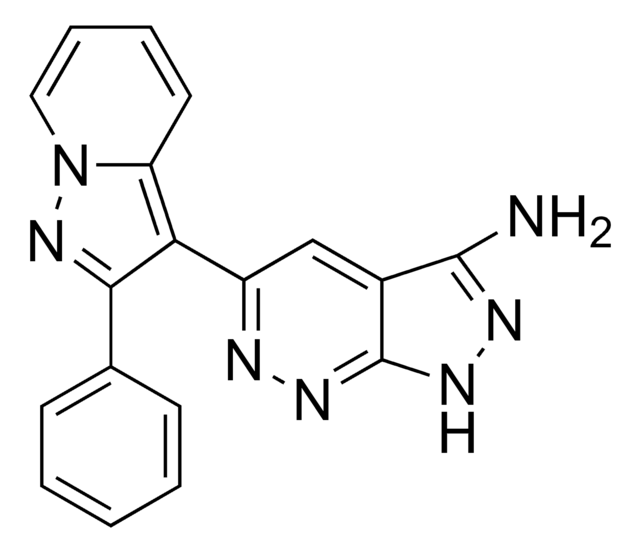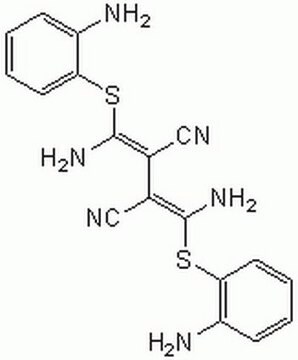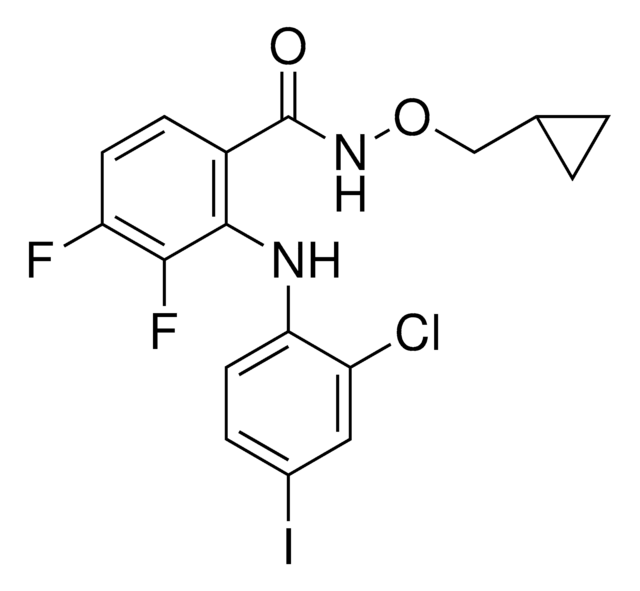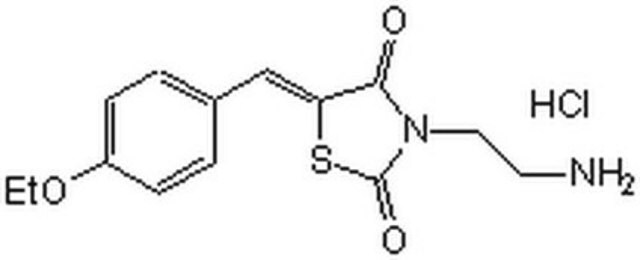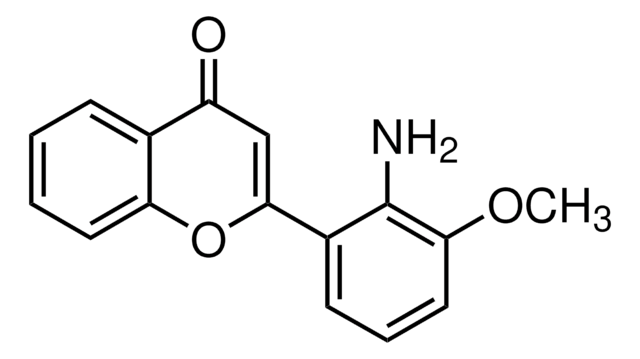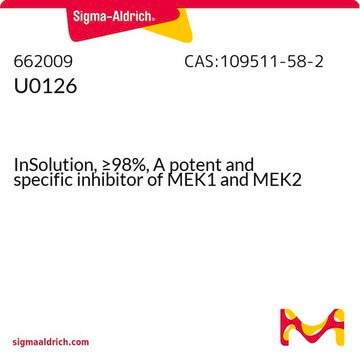Wichtige Dokumente
A6355
3-(2-Aminoethyl)-5-((4-ethoxyphenyl)methylene)-2,4-thiazolidinedione hydrochloride
powder, ≥98% (HPLC)
Synonym(e):
Erk Inhibitor
About This Item
Empfohlene Produkte
Assay
≥98% (HPLC)
Form
powder
Lagerbedingungen
desiccated
under inert gas
Farbe
off-white
Löslichkeit
DMSO: ≥4 mg/mL
Lagertemp.
2-8°C
SMILES String
Cl[H].CCOc1ccc(cc1)C=C2SC(=O)N(CCN)C2=O
InChI
1S/C14H16N2O3S.ClH/c1-2-19-11-5-3-10(4-6-11)9-12-13(17)16(8-7-15)14(18)20-12;/h3-6,9H,2,7-8,15H2,1H3;1H/b12-9+;
InChIKey
PQVLWVGMXJPJLG-NBYYMMLRSA-N
Anwendung
Biochem./physiol. Wirkung
Leistungsmerkmale und Vorteile
Lagerklassenschlüssel
11 - Combustible Solids
WGK
WGK 3
Flammpunkt (°F)
Not applicable
Flammpunkt (°C)
Not applicable
Hier finden Sie alle aktuellen Versionen:
Besitzen Sie dieses Produkt bereits?
In der Dokumentenbibliothek finden Sie die Dokumentation zu den Produkten, die Sie kürzlich erworben haben.
Artikel
The mitogen-activated protein kinase (MAPK) family consists of both stress activated (SAPK) and mitogen-activated (MAPK) protein kinases. They form a network of signal transduction cascades that mediate cellular responses to a diverse range of stimuli, including growth factors, chemical or osmotic stress, irradiation, bacterial infection and proinflammatory cytokines.
Unser Team von Wissenschaftlern verfügt über Erfahrung in allen Forschungsbereichen einschließlich Life Science, Materialwissenschaften, chemischer Synthese, Chromatographie, Analytik und vielen mehr..
Setzen Sie sich mit dem technischen Dienst in Verbindung.